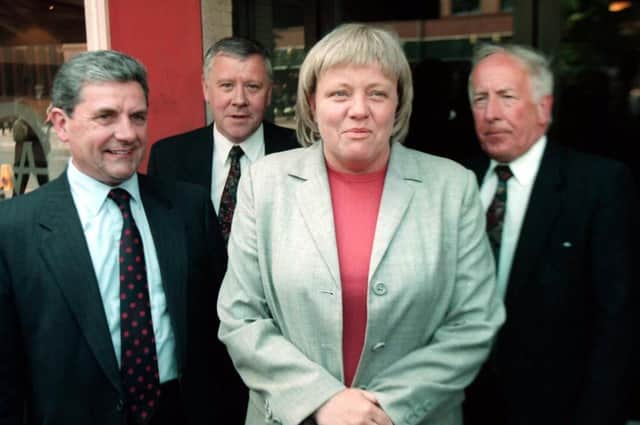Declassified files: Mo Mowlam considered bid to delay parading report


A series of letters from senior civil servants in Downing Street and the Northern Ireland Office show the concerns inside government about the potential impact of the commission issuing its preliminary view on volatile parading disputes such as Drumcree/Garvaghy Road in Portadown and Belfast’s Lower Ormeau Road.
The recently formed independent body established to adjudicate on Orange Order parades in the Province had been due to issue a report at the end of March 1998 setting out its preliminary views on whether some of the most controversial marches should be allowed to proceed along traditional routes.
Advertisement
Hide AdAdvertisement
Hide AdThis planned publication date was at a pivotal point in political efforts to strike a peace agreement – the Good Friday Agreement would ultimately be signed on April 10.
An exchange of letters from mid-March, contained in newly released archive files from 1998 from the Public Records Office of Northern Ireland, reveal government deliberations on the appropriateness of using “discreet persuasion” to get the commission to delay publishing its findings.
On March 13, Ken Lindsay, the private secretary of then Northern Ireland secretary Ms Mowlam, who died in 2005, wrote to Tony Blair’s private secretary, John Holmes, to outline the issue.
He said there was concern that the ruling on the Drumcree/Garvaghy Road dispute would have “the potential of impacting adversely on the progress made during the political talks which would at that time be at a particularly sensitive stage”.
Advertisement
Hide AdAdvertisement
Hide AdMr Lindsay added: “My Secretary of State has, therefore, together with ministerial colleagues and senior officials, been considering whether there would be any advantage in seeking to persuade the Parades Commission to delay publication of the preliminary view, for example until after Easter.”
He stressed that the commission was an independent body and, as such, may not take the advice on board.
He continued: “And even if it did, it is inevitable that the delay would be widely seen as having resulted from political pressure from Government.”
Mr Lindsay said Ms Mowlam had decided that there would be “little to be gain from attempting to persuade the Commission” and the best approach would be to “stand back from the issue” and not intervene.
——— ———
A message from the Editor:
Advertisement
Hide AdAdvertisement
Hide AdThank you for reading this story on our website. While I have your attention, I also have an important request to make of you.
With the coronavirus lockdown having a major impact on many of our advertisers — and consequently the revenue we receive — we are more reliant than ever on you taking out a digital subscription.
Subscribe to newsletter.co.uk and enjoy unlimited access to the best Northern Ireland and UK news and information online and on our app. With a digital subscription, you can read more than 5 articles, see fewer ads, enjoy faster load times, and get access to exclusive newsletters and content. Visit https://www.newsletter.co.uk/subscriptions now to sign up.
Our journalism costs money and we rely on advertising, print and digital revenues to help to support them. By supporting us, we are able to support you in providing trusted, fact-checked content for this website.
Ben Lowry
Editor